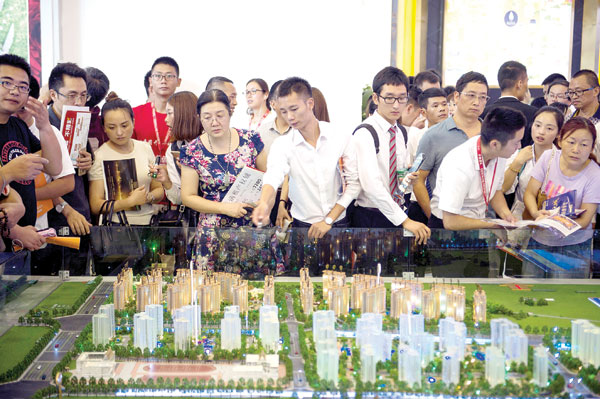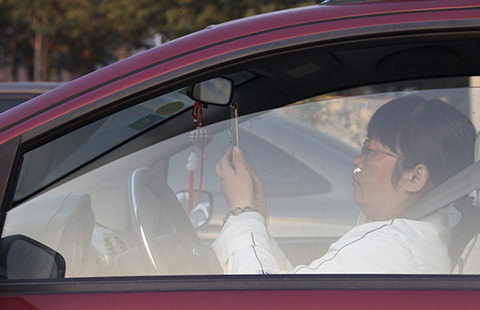New housing restrictions announced
By Fan Feifei (China Daily) Updated: 2016-10-04 01:25
 |
|
Prospective buyers attend a real estate trade fair in Chengdu, capital of Sichuan province, on Monday. People will only be allowed to purchase one property in certain areas of the city, while those buying a second property will need to make a down payment of no less than 40 percent of the purchase price, the local government said. PROVIDED TO CHINA DAILY |
Eight local governments follow Beijing's example to cool the overheated market
In the past three days, local governments in nine cities have announced new restrictions on property purchases, designed to dampen speculative buying and curb soaring prices.
At the weekend, Tianjin, Suzhou, Zhengzhou, Chengdu, Jinan, Wuxi, Hefei and Wuhan followed an announcement made in Beijing late Friday night, and introduced measures to cool the residential property market, such as raising down payment requirements for second homes or banning the purchase of second and third homes.
Average prices of commercial residential property in the cities have registered doubled-digit, year-on-year rises in the past few months. In August, Zhengzhou, in Henan province, saw the country's fastest monthly surge in the prices of new commercial residences and pre-owned homes.
According to the National Bureau of Statistics, the average price of new homes in 70 major cities rose 9.2 percent year-on-year in August, from 7.9 percent in July. More than 90 percent of the cities saw prices rise on a monthly basis.
Industry experts said cities including Fuzhou, Dongguan, Zhuhai, Shijiazhuang and Qingdao, where home prices have seen runaway growth, are also likely to tighten rules for home purchases
Yan Yuejin, research director of a think tank at the E-House China R&D Institute, a real estate research agency, said the new policies will restrain overheating home prices in some popular areas, and housing transactions in some cities are likely to fall in the second quarter of next year. However, home prices are not likely to see substantial declines because of the shrinking property inventory and land supply, and a swelling urban population, Yan said.
On Monday, as part of its efforts to curb speculation, the Ministry of Housing and Urban-Rural Development issued a list of 45 housing developers and agents accused of hoarding, price-rigging and other malpractices.
The Beijing government on Friday announced that down payments for first time homebuyers should be no less than 35 percent, up from the previous level of 30 percent, while that for purchases of second homes should be no less than 50 percent.
The land supply for so-called self-use houses, which are sold to qualified families at a price ceiling imposed by the government, will be increased, the government said.
"These measures (in Beijing) will affect potential buyers who are keen on an improved house by enhancing the investment threshold and utilizing financial leverage," said Guo Yi, marketing director at the Yahao Real Estate Selling and Consulting Solution Agency in Beijing.
Before the new regulations, the down payment requirement for pre-owned houses in Beijing had reached 40 to 60 percent of the total price, Guo said, adding that the proportion may rise to 50 to 70 percent under the new policy, which would greatly reduce demand for pre-owned housing.
Fan Hui, 32, a private business owner, bought an 80-square-meter two-bedroom apartment in Chaoyang district of Beijing in May. "I am very lucky because the price has risen by more than 1 million yuan ($150,000) in the three months since I bought it," Fan said.
- Credit default swap trading 'no threat to property market'
- Nanjing further tightens control on property market
- How property market frenzy can be curbed
- Shanghai's Greenland Group aims high in London property market
- Rumors expose problems in property market
- Shanghai's Greenland Group aims high in London property market
- Rumors expose problems in property market
- China to act against property market rumors
- China sees record high direct investment in US in 2015
- China's outstanding P2P loans hit record high in September
- Toyota unveils Kirobo Mini baby robot
- China-based Huawei selects distribution partner in Myanmar
- Golden Week to see rising tourism revenue: survey
- Hainan Airlines to launch direct China-New Zealand service in New Year
- China active contributor to world trade growth: MOC
- Unified real estate registration reform accelerated


















